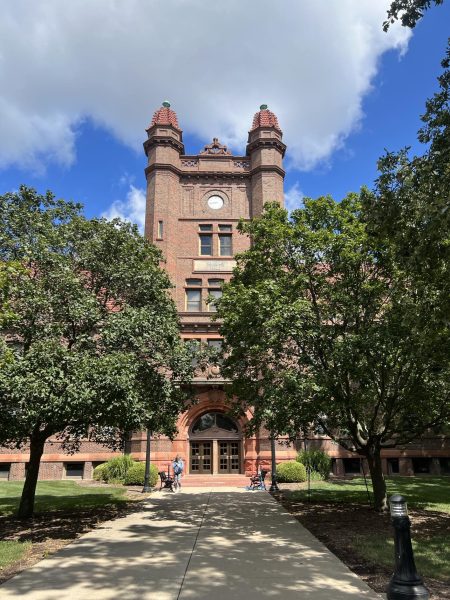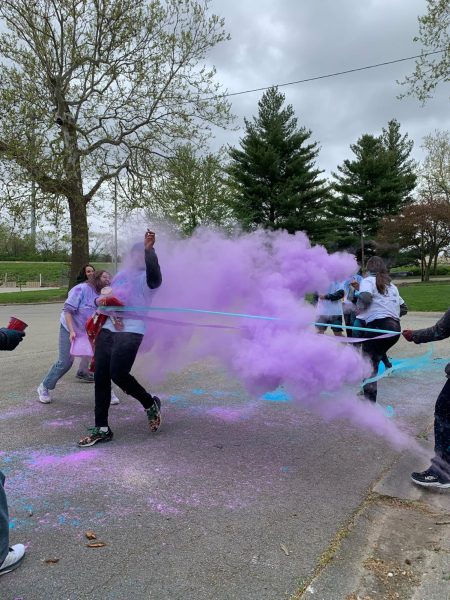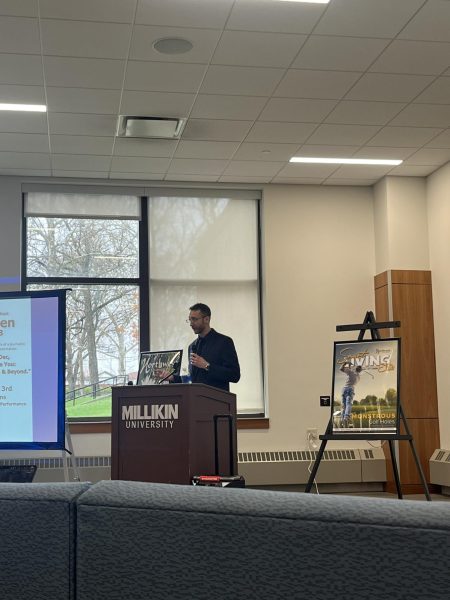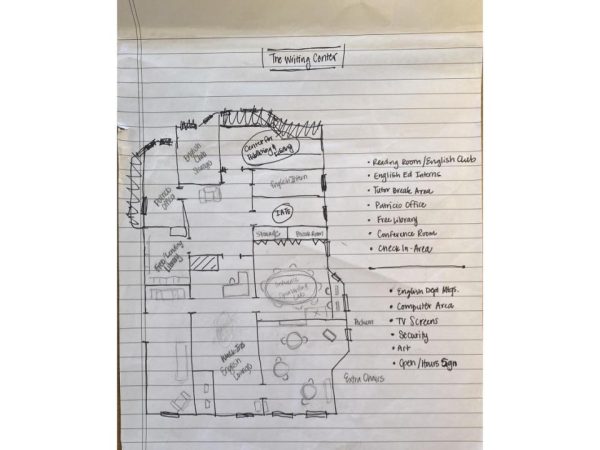Millikin’s Health Corner
College Depression and What You Can Do About It
Are the demands of college life getting you down? College is an incredible experience, but the demands as a college student can be overwhelming, especially if it is your first experience with being away from home.
College is a time of transition and transformation. As college students, you are trying to adjust to a heavier workload and more responsibilities, difficult classes, learning to live with new friends and how to belong, all while trying to maintain your health and sleep schedule. Therefore, feelings of being overwhelmed and hopeless are not uncommon to experience.
However, if you are feeling discouraged, gloomy, or irritable every day for more than two weeks, you could be experiencing a mood disorder called depression.
According to the Anxiety and Depression Association of America (ADAA), depression is the leading cause of disability in the United States among people ages 15-44. Furthermore, the National Institute of Mental Health states that depression is the most common health problem experienced by college students.
The symptoms of depression can be physical and emotional symptoms. Depression can be characterized by a decreased interest or enjoyment in usual activities. Some of the other common symptoms experienced include feelings of helplessness or hopelessness, a sad mood, fatigue, poor concentration, anxiety, headaches, and suicidal thoughts or attempts.
It is important to understand that depression can manifest differently in males and females. Males can exhibit symptoms such as fatigue, aggravation, and careless behaviors, possibly associated with drugs and alcohol. Males are also less likely to identify depression symptoms and seek help. Females can exhibit symptoms such as sadness, hopelessness, and shame.
Depression can go hand-in-hand with other medical conditions, such as anxiety, thyroid, or eating disorders. Furthermore, certain medications may lead to depression as a side effect. It is critical to seek help as soon as possible if you believe you are experiencing depression.
As mentioned previously, depression is one of the main risk factors for suicide. Knowing the signs and symptoms of suicidal ideations and risk could save your life or the life of someone you care about.
The following signs are concerning in regard to suicidal risk: verbalizing the desire to die or kill oneself, verbalizing about having no purpose to live or being a burden to others, careless behaviors, retreating from social situations, not sleeping enough or sleeping too much, and giving away belongings.
Avoiding the symptoms can lead to worsening depression and an increased risk for suicide, according to the ADAA. In addition, leaving depression untreated could lead to unhealthy coping mechanisms, such as binge drinking or substance abuse.
Early recognition and treatment of depression is vital to one’s health and well-being. Depression can improve with the many treatment options available.
Millikin offers free, confidential counseling services through the Millikin/Decatur Memorial Hospital (DMH) Health Clinic. The clinic is located across from the Decatur Indoor Sports Center (DISC) (contact information listed below article). Treatment for depression ranges from therapy and medication to complementary/alternative medicine (CAM) therapies, or a combination of multiple treatment options.
The counseling therapies are often referred to as cognitive-behavioral psychotherapy (CBT). CBT is a beneficial type of therapy which involves teaching you skills to help you directly cope with your thoughts, emotions, and behaviors. CBT also teaches you how to make the feelings of depression cease when they overcome you.
Aside from the traditional treatments of counseling therapy and medications, the ADAA discusses interest in CAM therapies as a holistic approach to treating depression. Some CAM therapies include regular exercise, yoga, meditation, and essential oil aromatherapy.
If you or someone you know is considering suicide, please seek help as soon as possible. Call the toll-free number, available 24 hours per day and every day: 1-800-273-TALK (8255). This number is the National Suicide Prevention Lifeline. This service is available to anyone free of charge and all calls are confidential.
Be vigilant in watching for these signs and symptoms in yourself and those around you! Never leave a friend alone if you believe that they are at risk of harming themselves. Help is always nearby: campus security, the student health services through Millikin/DMH clinic, or the emergency room at Decatur Memorial Hospital (DMH) or St. Mary’s Hospital in Decatur.
Every Life Matters.











